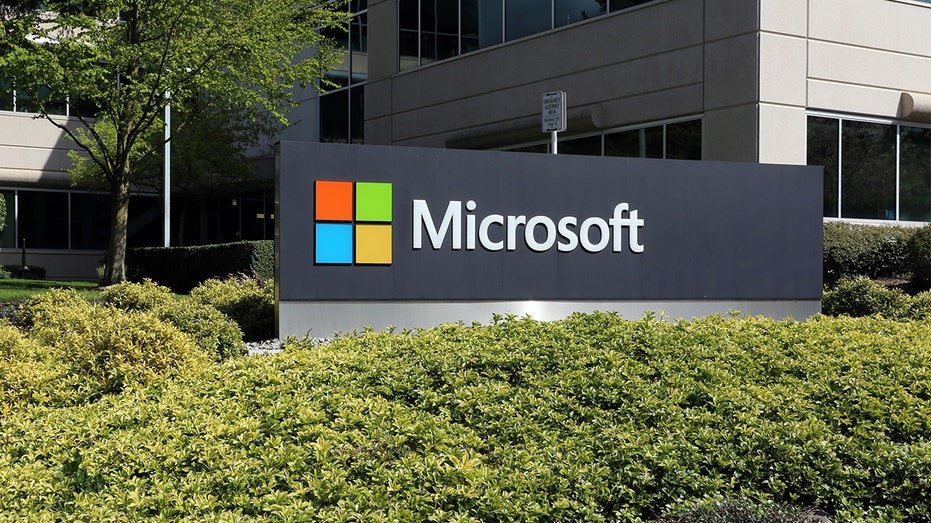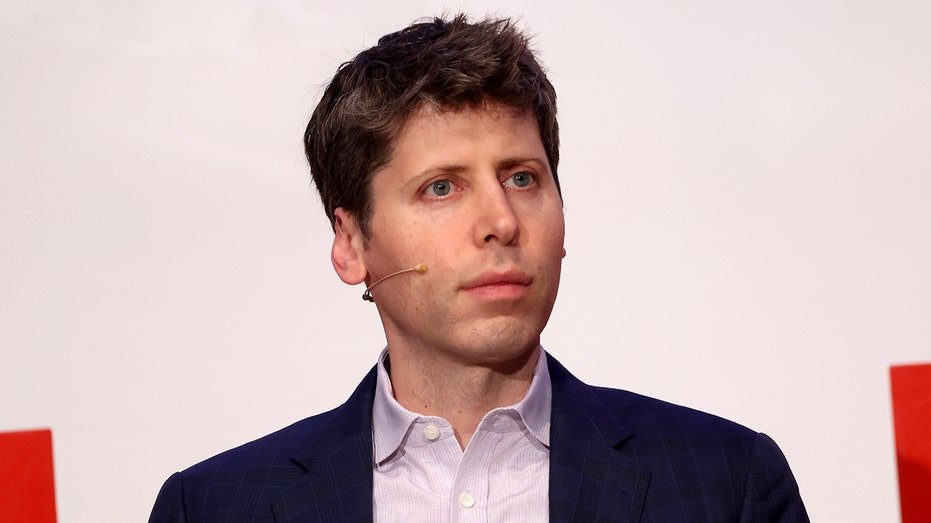Business
Databricks AI Chief to Exit, Launch a New Computer Startup

(Bloomberg) — Naveen Rao, the head of artificial intelligence at the $100 billion startup Databricks Inc., is planning to leave his position to launch a new venture making a novel type of computer, according to a person familiar with the matter.
A spokesperson for Databricks confirmed that Rao is transitioning to an advisory role at the company, and said that Databricks is planning to invest in his new startup. The spokesperson declined to disclose the size of the investment.
Rao has also held early talks with other investors about backing the new company, which would focus on building a next-generation computer to address the rising costs of AI computing power, said the person familiar with the conversations, who asked not to be named discussing private information.
Rao declined to comment on his plans for the new company.
Rao is a serial entrepreneur who sold his data and AI analytics startup MosaicML to Databricks in 2023 for $1.3 billion. MosaicML had raised about $30 million from investors including Maverick Ventures, Lux Capital and DCVC. Before that, Rao co-founded Nervana Systems, a machine intelligence platform, which was acquired by Intel Corp. in 2016 for about $350 million.
Given Rao’s track record, the new venture could attract significant investor interest at a lofty valuation. He would also join a wave of prominent tech executives who’ve launched startups, including former OpenAI Chief Technology Officer Mira Murati, whose company Thinking Machine Labs was last valued at $10 billion, and ex-Salesforce co-CEO Bret Taylor, whose two-year-old AI startup Sierra was also recently valued at $10 billion.
Databricks recently raised $1 billion in a funding round that made it one of the country’s most valuable startups. The round was co-led by Andreessen Horowitz, Insight Partners, MGX, Thrive Capital and WCM Investment Management.
More stories like this are available on bloomberg.com
Business
Alibaba’s Shares Soar After Investors Buy Into Big AI Moves

(Bloomberg) — Alibaba Group Holding Ltd.’s stock gained the most in about two weeks after the company initiated a series of moves intended to shore up its place in China’s AI development boom.
The e-commerce leader’s shares climbed more than 7% in early Hong Kong trading, tracking an overnight gain in the US. That takes the Chinese company’s gain to over 80% this year, a rally driven by aggressive moves to expand into the fledgling field of artificial intelligence.
Alibaba this week raised $3.2 billion in convertible bonds to bankroll the country’s biggest AI infrastructure budget and cloud service. It unveiled updates to flagship Qwen-series models designed to compete with DeepSeek and OpenAI. And The Information reported that Alibaba and Baidu Inc. are starting to employ in-house chips in the training of artificial intelligence, replacing costly Nvidia Corp. accelerators. Baidu’s stock rose close to 13% in Hong Kong to its highest since October 2024.
Alibaba is staging a comeback after years of regulatory scrutiny hammered its internet business. The firm co-founded by Jack Ma has established itself this year among the frontrunners of a nationwide AI frenzy. It’s since declared itself wholly in pursuit of artificial general intelligence — the holy grail for many tech companies.
Its recent moves coincide with growing optimism about the outlook for a technology expected to revolutionize industry and economies. This week, Oracle Corp. helped ignite a sectoral rally after delivering a blowout outlook for global AI spending.
“Alibaba’s recent moves have shifted investors’ focus completely to its AI potential, offsetting the concerns about its price wars in food delivery,” said Paul Pong, a managing director at Pegasus Fund Managers. “With the capability of producing its own chips, it should create more growth drivers.”
The stock gains come even as Alibaba wages war with deep-pocketed rivals on another front.
This week, the company declared it was sinking more money into incentives and subsidies to power its local services and e-commerce business. It’s committing another 1 billion yuan ($140 million) of incentives to drive more traffic to one of its most popular online services, cranking up the heat on JD.com Inc. and Meituan in their ongoing battle for Chinese consumers.
Some analysts regard that as a positive given it’s competing hard for users to drive its core business. But others point to margin erosion at a time AI’s monetization potential remains elusive.
What Bloomberg Intelligence Says
Alibaba’s latest AI model releases, including the more efficient Qwen3-Next and 1-trillion-parameter Qwen-3-Max-Preview, should support demand for its cloud services. However, returns from the segment are set to remain poor, given low margins and disproportionately high capital costs. Quarterly adjusted Ebita in the cloud intelligence division rose by just $86 million in the 12 months ended June 2025. Tencent remains better placed to generate a near-term return on AI, in our opinion.
– Robert Lea and Jasmine Lyu, analysts
Click here for the research.
(Updates with Baidu’s stock from the third paragraph.)
More stories like this are available on bloomberg.com
Business
Rent the Runway Adds AI Enhancements Amid Transformation

Rent the Runway is continuing to roll out new personalized recommendations and artificial intelligence (AI)-powered enhancements as part of a wide-ranging transformation of its fashion subscription, rental and resale platform.
Business
OpenAI nonprofit gains $100B stake while retaining control of AI company

NVIDIA CEO and co-founder Jensen Huang commends President Donald Trump’s A.I. agenda and outlines what the country’s job future will look like on ‘Special Report.’
Artificial intelligence giant OpenAI on Thursday announced its nonprofit parent will retain control of the company while also gaining an equity stake worth more than $100 billion.
The move will allow OpenAI to raise new capital while also making its nonprofit parent company “one of the most well-resourced philanthropic organizations in the world,” according to Bret Taylor, chairman of OpenAI’s board.
OPENAI TEAMS UP WITH WALMART TO TRAIN MILLIONS OF WORKERS IN ARTIFICIAL INTELLIGENCE
“This recapitalization would also enable us to raise the capital required to accomplish our mission — and ensure that as OpenAI’s [public benefit corporation] grows, so will the nonprofit’s resources, allowing us to bring it to historic levels of community impact,” Taylor said in a statement.
In this photo illustration, the OpenAI logo is seen displayed on a smartphone screen. (Thomas Fuller/SOPA Images/LightRocket via Getty Images / Getty Images)
OpenAI and Microsoft also said in a joint statement on Thursday that they signed a non-binding memorandum of understanding (MOU) to shape their next phase of partnership and are actively working to finalize a definitive deal. The companies said they are focused on building “the best” artificial intelligence tools that are also safe.
OPENAI CEO SAM ALTMAN WARNS OF AI FRAUD CRISIS ‘VERY SOON’
“OpenAI and Microsoft have signed a non-binding memorandum of understanding (MOU) for the next phase of our partnership,” the two companies said in a joint statement Thursday afternoon. “We are actively working to finalize contractual terms in a definitive agreement. Together, we remain focused on delivering the best AI tools for everyone, grounded in our shared commitment to safety.”

The Microsoft headquarters campus in Redmond, Washington. (iStock / iStock)
Microsoft has reportedly invested around $13 billion in the ChatGPT creator since 2019.
A MAJORITY OF SMALL BUSINESSES ARE USING ARTIFICIAL INTELLIGENCE
In May, OpenAI announced it was scuttling its plan to move the company away from a nonprofit structure to becoming a for-profit company. The ChatGPT-maker created a for-profit limited liability company (LLC), which it converted into a public benefit corporation that considers the interests of shareholders as well as OpenAI’s mission. The tech giant announced at the time that OpenAI’s nonprofit would have operational control over the public benefit corporation and would be a large shareholder in it.

Sam Altman, co-founder and CEO of OpenAI, speaks during a panel discussion titled “The Age of AI” at the Technical University of Berlin on February 07, 2025, in Berlin, Germany. (Sean Gallup/Getty Images / Getty Images)
OpenAI CEO Sam Altman, who prompted the company’s exploration of moving to a for-profit structure to make it easier for the company to raise the large amounts of money for investments he thinks will be needed to achieve artificial general intelligence (AGI), sent a letter to employees at the time explaining the decision and what it means for the company.
GET FOX BUSINESS ON THE GO BY CLICKING HERE
“OpenAI was founded as a nonprofit, is today a nonprofit that oversees and controls the for-profit, and going forward will remain a nonprofit that oversees and controls the for-profit. That will not change,” Altman wrote in May.
FOX Business’ Eric Revell contributed to this report.
-

 Business2 weeks ago
Business2 weeks agoThe Guardian view on Trump and the Fed: independence is no substitute for accountability | Editorial
-
Tools & Platforms1 month ago
Building Trust in Military AI Starts with Opening the Black Box – War on the Rocks
-

 Ethics & Policy2 months ago
Ethics & Policy2 months agoSDAIA Supports Saudi Arabia’s Leadership in Shaping Global AI Ethics, Policy, and Research – وكالة الأنباء السعودية
-

 Events & Conferences4 months ago
Events & Conferences4 months agoJourney to 1000 models: Scaling Instagram’s recommendation system
-

 Jobs & Careers2 months ago
Jobs & Careers2 months agoMumbai-based Perplexity Alternative Has 60k+ Users Without Funding
-

 Podcasts & Talks2 months ago
Podcasts & Talks2 months agoHappy 4th of July! 🎆 Made with Veo 3 in Gemini
-

 Education2 months ago
Education2 months agoMacron says UK and France have duty to tackle illegal migration ‘with humanity, solidarity and firmness’ – UK politics live | Politics
-

 Education2 months ago
Education2 months agoVEX Robotics launches AI-powered classroom robotics system
-

 Funding & Business2 months ago
Funding & Business2 months agoKayak and Expedia race to build AI travel agents that turn social posts into itineraries
-

 Podcasts & Talks2 months ago
Podcasts & Talks2 months agoOpenAI 🤝 @teamganassi





















